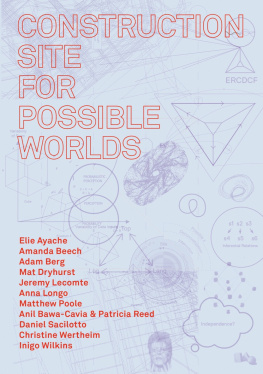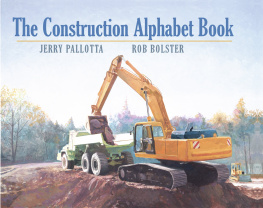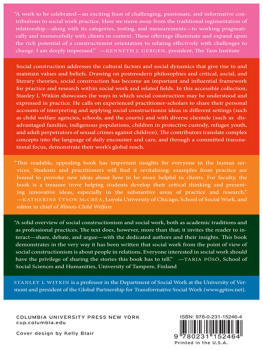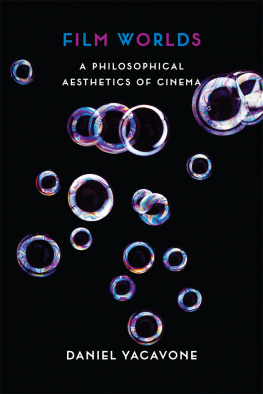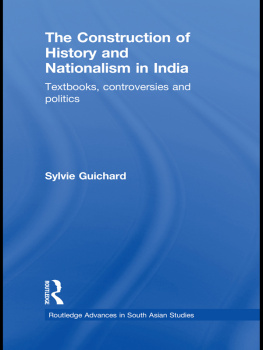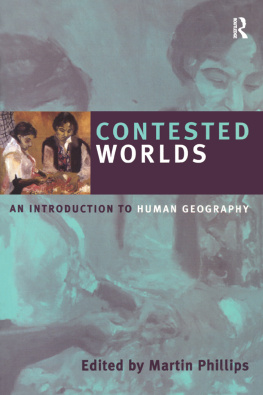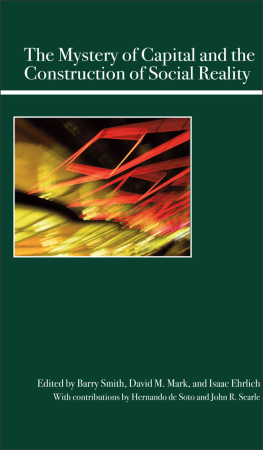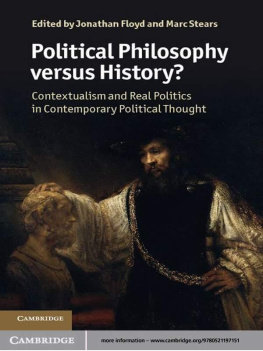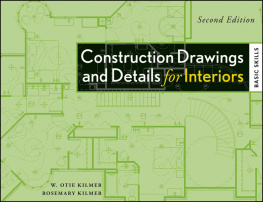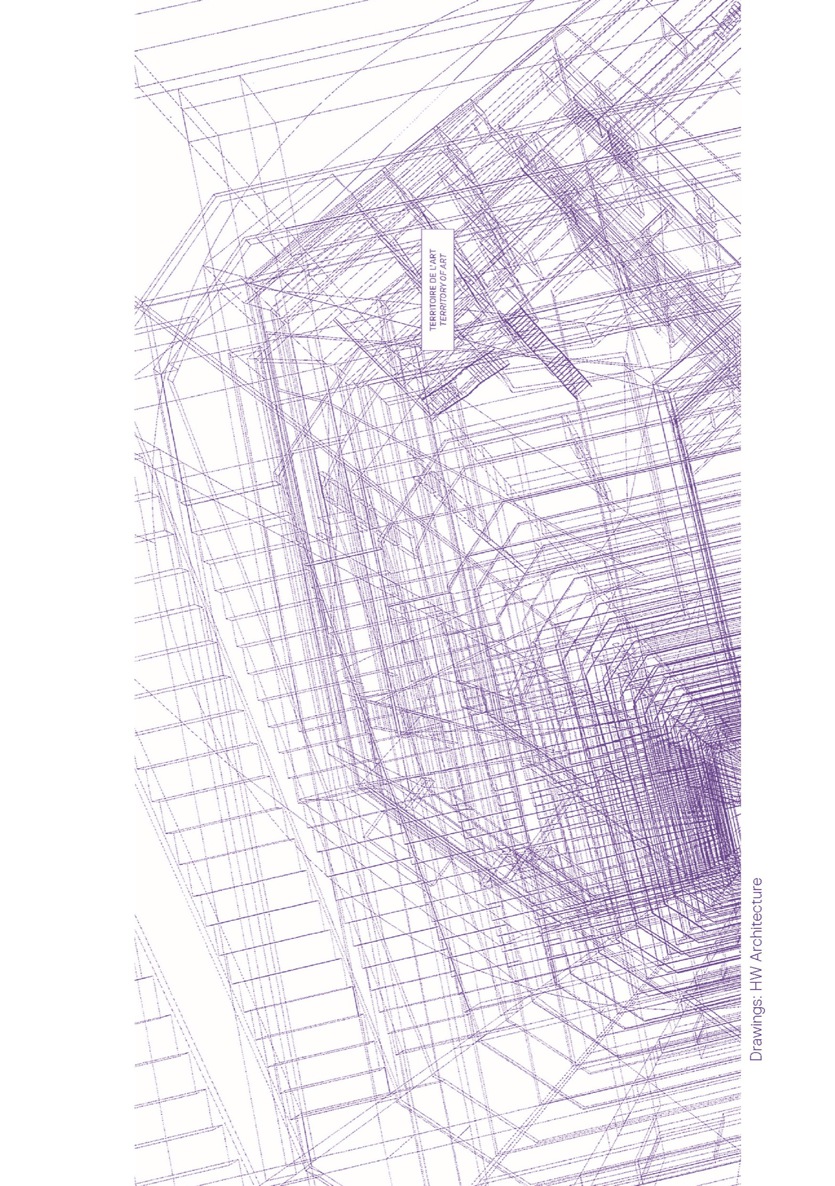Elie Ayache
The Only Possible Project
Light
Down with the world . It is no longer a question of finding an alternative to the world, but of bringing it down, together with any vision of an alternative. The world is so exposed to the light of capital, so heavily surveyed and surveilled by its searchlights, that any alternative construction, projected under the same light, cannot really qualify as an alternative. One even wonders whether possibility as such, as when we talk of possible worlds and of other ways that the world could possibly be, is not itself the light that must first be turned off.
Speculation, or trying to mirror this world beyond its empirical evidence, trying to think what this world may possibly be made of in order to imagine other ways it can possibly be, is first and foremost a question of light. For this reason, speculation in this sense may not be the right way to construct other worlds. We are sick and tired of alternatives that seem to vary from the actual world only for us to realise that they are mere speculations, configurations of light coming from the present world but reflected differently, alternative possible worlds that only extend the range of possibility emanating from the same source.
It is not for another possible world that we should be looking, but for an alternative to possibility as such. If possibility is only a decoy, something that makes us feel confident we have changed the world only to better entrap us and recuperate us into that same world, then it is possibility as such, the very instrument of confinement within the present world (that which gives us the same under the guise of the different), that must be changed. And to make this change more efficient, it ought to take place literally without leaving the present world. Rather than changing the world, it is much more powerful to change that which makes us think we have changed the world when in fact we have not, i.e. possibility as such.
The variation of thinking I have in mind is that, for instance, expressed by Blanchot as follows: In a literary work, one can express thoughts as difficult and of as abstract a form as in a philosophical essay, but only on the condition that they are not yet thoughts. When thought is confronted with its not yet, when we are urged to understand what goes faster than thought and prevents it from being yet thought, and when we understand that this gap is of course of this world and not of another world, then all questions of other possible worlds become secondary, if not irrelevant.
Pierre Menard did not change the text; he changed the whole make-up of possibility. And he managed to do so with one possibility only, that of Don Quixote . What enabled him to do so was its written character, the vibration or variance that is inherent in writing, and makes us believe that although his logical text is the same as Cervantess, his written text is different. By contrast, we will need the full extent of the derivatives market in order to deliver the same critique of possibility. What Borges could deliver thanks to literature and the regime of its not yet thought, we can only achieve technically with the full register of derivative writings.
Blanchot was preoccupied with works of literature, which are definitely of this world. Bergson, on the other hand, lays claim to another not yet: he says that a philosophy of the real has never, in the end, been constituted. This never is more urgent than the not yet, yet it also is not something other-worldlyindeed, Bergson speaks of the very real, the present real.
My personal conviction has always been that the resistance to thinking according to the not yet (the thing that diverts thought altogether from the metaphor of light, keeping in mind that the accomplishment and even the highest degree of thinking seem precisely to lie in thought being prevented from reaching its ultimate light, or rather, in light being prevented from catching up with thought) is the resistance of matterand that the foray of thought into matter translates into writing.
Writing is faster than thought, and matter is faster than light. When thought adopts writing as its medium, it can go to places the light of thought has not yet reached, places where the thought in question is not yet thought. Light, conceptual thinking, involves fixity, according to Bergson, and a succession of states of rest. To join with the real and capture its instability instead of fixity, thought must find the appropriate speed. The thread of writing will precisely appear as the critique of possible states and their fixity, and will be at variance with possibility. I have personally tried to extract it from what looked, at first blush, like the epitome of capital, namely the financial market. As I said, changing the very logic of possibility is all the more efficient if done in this way.
Matter
The only other possible world worthy of the name, the only one that does not fall under the same light, is the one we attain by changing the possible as such. Once we get to that level, possibility no longer means the same thing, and we can no longer talk of alternative possible worlds. Meillassoux proposes, for instance, to constrain the possible in such a way as to obtain the un-totalisation of possibilities. This means that possibility is no longer relevant and that we reach a new category, the necessity of contingency, which I call matter and to which probability doesnt apply.
Changing possibility as such yields a single world. This is because we generate a new notion of reality. The reality of the financial market, or the reality of the text written by the architect after the fallen architectural project (on which more later) are such that possibility is foregone and is no longer at play. All these manners of changing possibility and generating this new reality are not alternatives but presentations of the same thing . Indeed, what we want to show here is that this true manner of changing possibility, because it involves matter, is the only construction.
When we speak of construction, we suppose matter and a tool working on and in it. We want to construct the possible world and no longer to speculate; we want to make sure we are holding something (matter) in our hand such that construction, not speculation, will be the result; yet we are worried that this something we are holding, and which is therefore definitely of this world, might end up allowing us to be recuperated by that same world. But then, if we let go of anything relating to this world, how could we guarantee that our speculation is really a construction (that is to say, that it is constrained by any reality) and is not absolute speculation, totally unbound? How even to begin imagining another possible world with nothing in our grasp from which we could take our lead?
This, once again, is an argument to the effect that possibility itself is the thing we should be holding in our hand in this world, precisely so as to change it in such a way as to get somewhere else. It will even turn out that the holding of possibility, or capturing its very schema and make-up, is matter. We will be holding in our hand the very medium of contingency, which is faster than light and faster than thought and is, therefore, the true beginning of the only true construction.
I am trying to argue, from the significance of construction , which we intend to be different from speculation and pure hope, that there is only one possible construction, one possible world to come, such that the trip towards it, or our expectation of it (not yet), or the way it is supposed to fulfil our expectations (which are different from hopes) dispense with all thought of possibilities. The construction is such that it must start with possibility and change it. This means engaging with a not yet thought such that this engagement will make every notion of possibility fade away.

